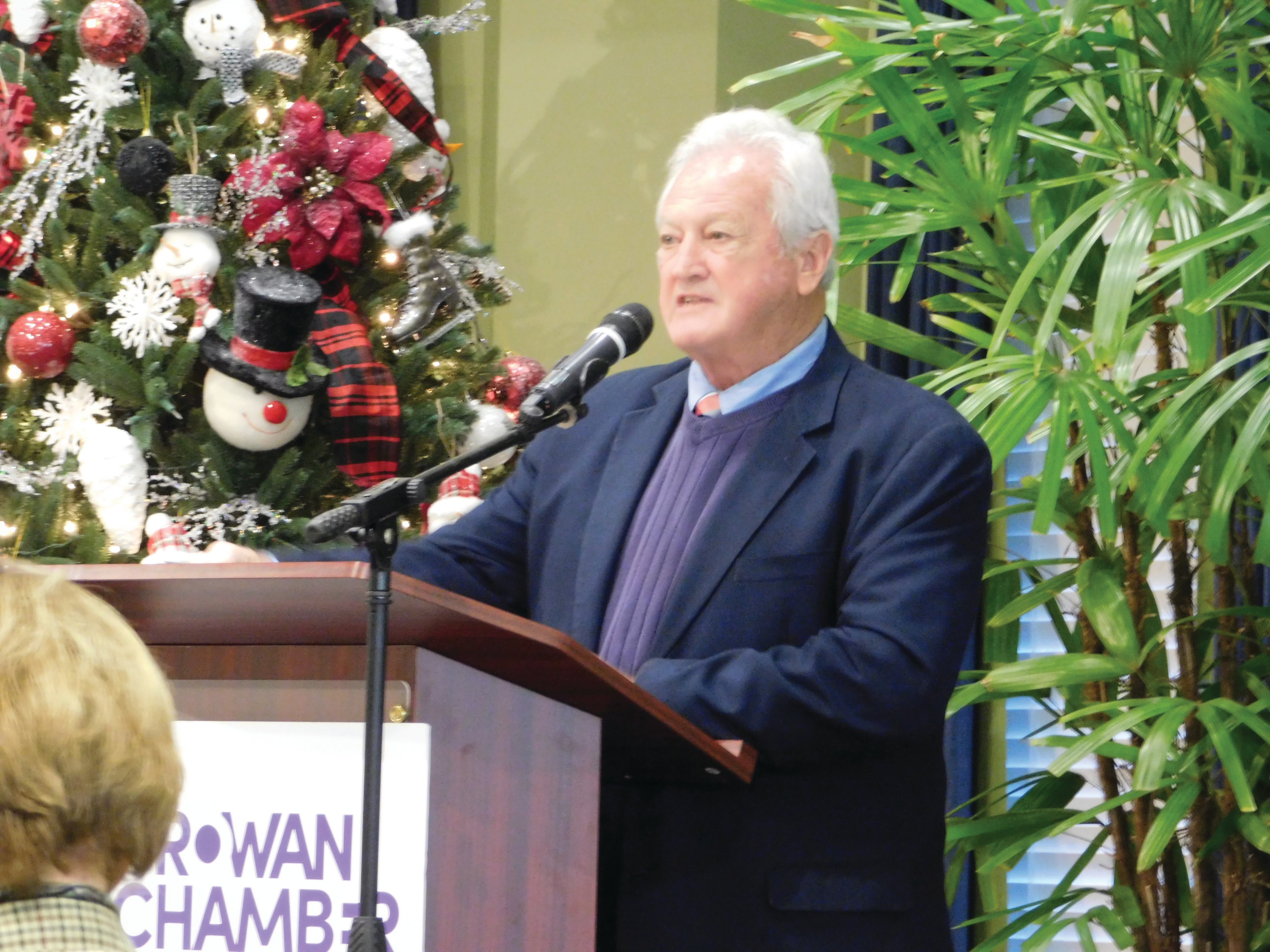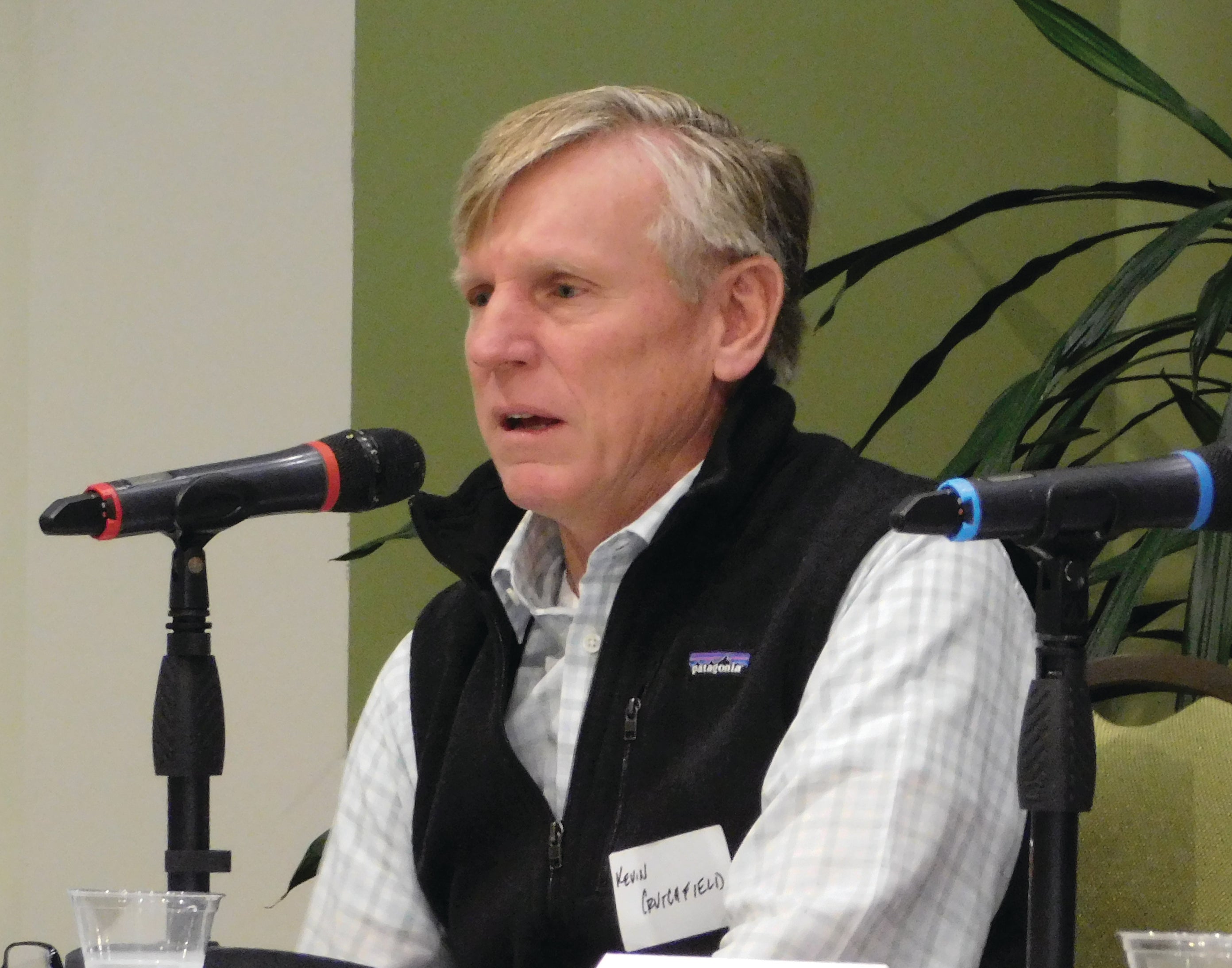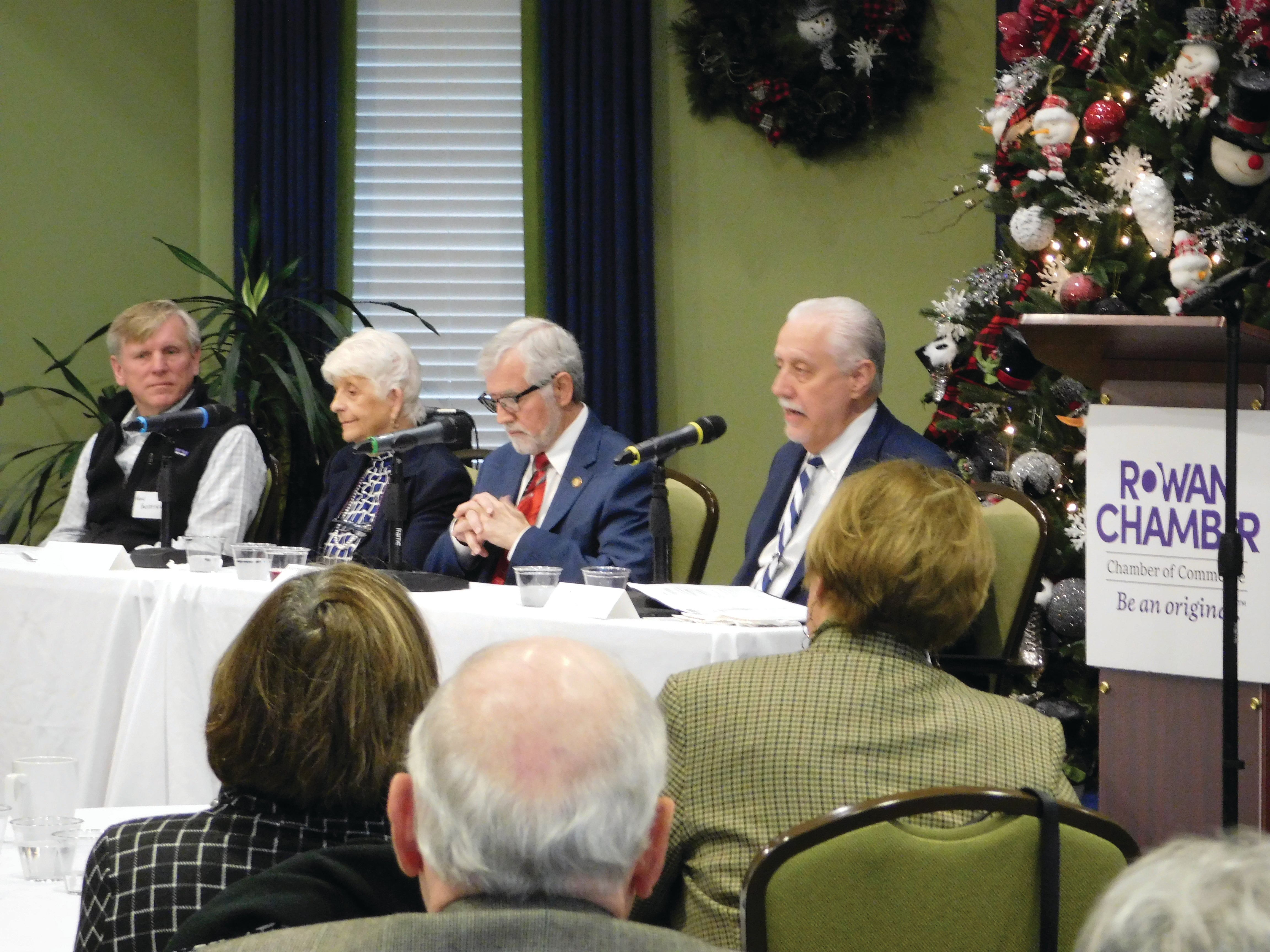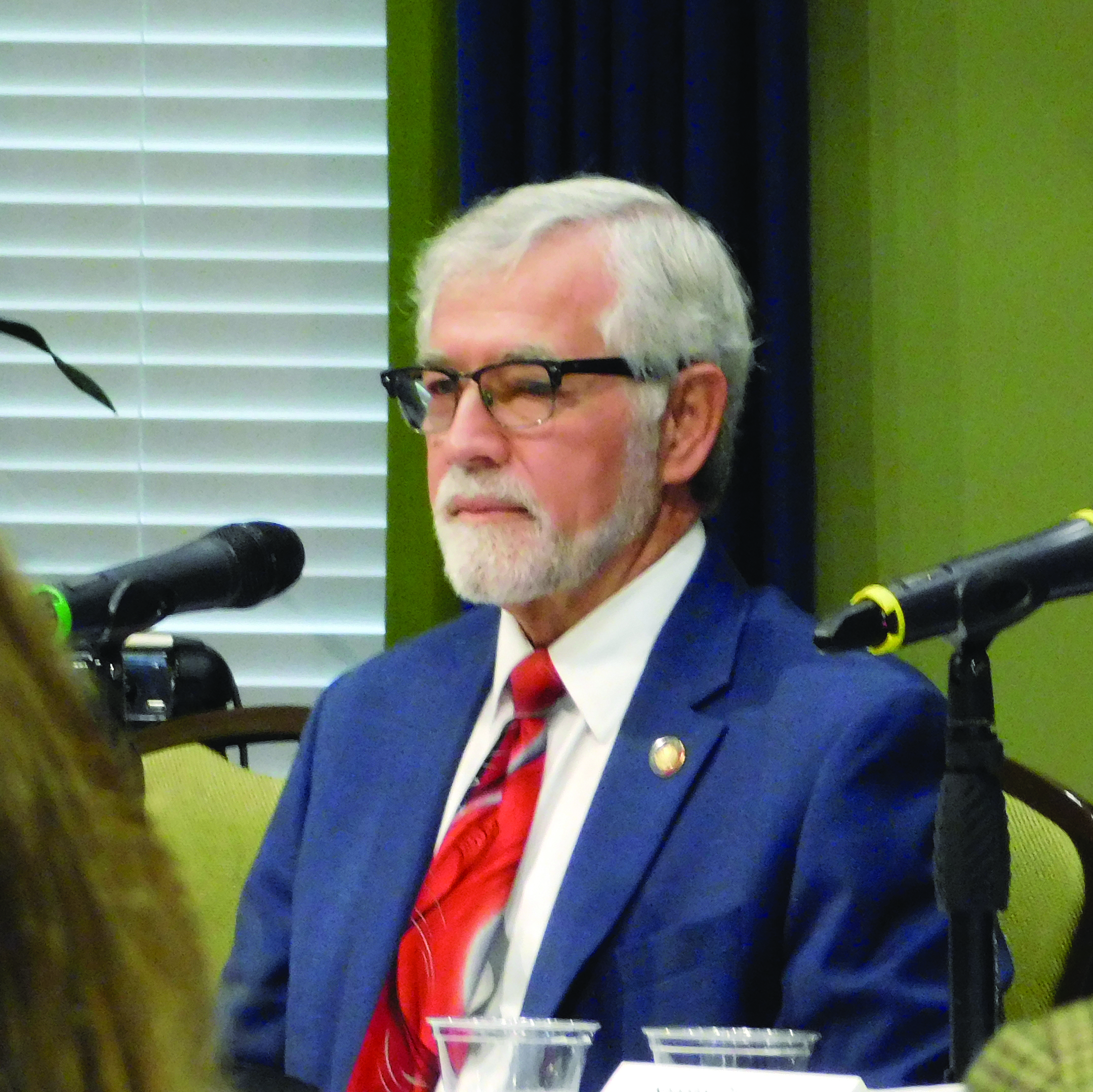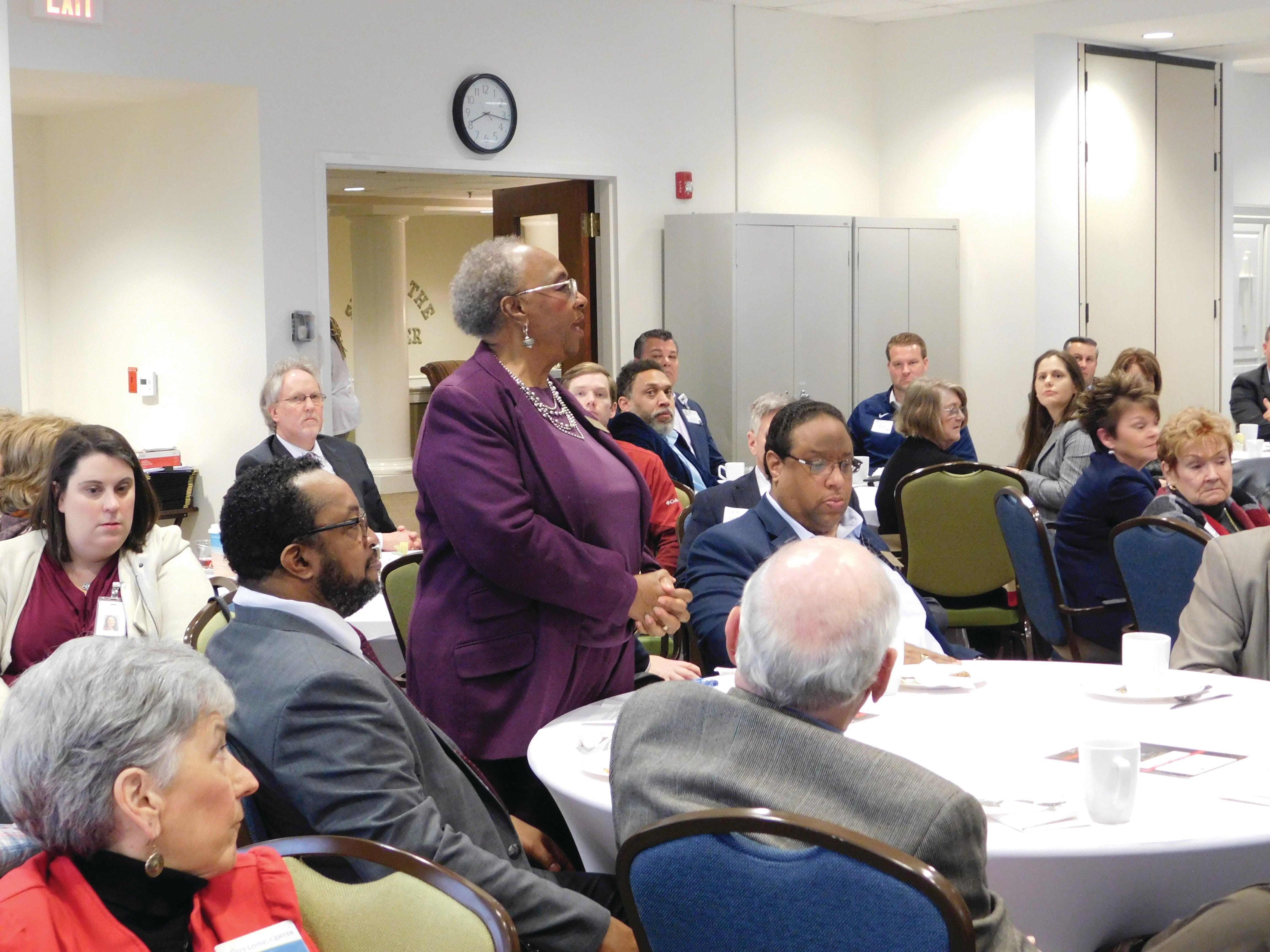Rowan Chamber of Commerce presents priorities at annual legislative breakfast
Published 12:05 am Sunday, January 22, 2023
SALISBURY — Early Thursday morning, the movers and shakers in Rowan County gathered in a sold-out crowd to hear from and talk with the four legislators representing Rowan County in Raleigh.
All four, Sen. Carl Ford, District 33; Rep. Harry Warren, District 76; Rep. Julia Howard, District 77; and new Rep. Kevin Crutchfield, District 83 were on hand as 125 people gathered for breakfast and conversation at Trinity Oaks.
Rowan Chamber President Elaine Spaulding announced a few upcoming dates before the official event began, including the organization’s annual meeting this coming Thursday night, the Oyster Roast Festival at Waterworks on Jan. 28, and the annual Dragonboat Festival on tap this year on July 22.
She introduced the new Chair of the chamber, Elaine Holden, before handing the meeting over to Business Advocacy Chair (and Chair-elect for 2024) Terry Osborne.
“I have never seen such camaraderie as there is in this community now,” said Osborne. “But, we get in our comfort zone, and we have to be reminded that we still have things to do.” He pointed out that North Carolina has gone from No. 9 in terms of population to No. 8, so focusing on continuing to serve a growing number of residents is essential. He said each of the legislators would have five or so minutes to speak, then several questions had been submitted before the group would break up.
In addition, the chamber sent legislators home with a two-page list of goals and projects for which chamber members have asked for attention.
Ford, who is currently joint caucus leader in the Senate and who has served four terms in the House and is now in his third term in the Senate, said serving 20 towns means he gets a lot of requests, but he appreciates the communication. He pointed out that one of the biggest blessings in Rowan and the area is the Yadkin River and praised efforts to develop it to the best benefit of the communities it serves.
“I don’t know when to quit,” said Howard. “Every morning when I get up, I start thinking of things we haven’t done yet.” She said maybe someday she’ll be ready to stop, but not today. She said she is proud of the work she and her peers have accomplished, including repaying a $3 billion debt to the federal government for unemployment insurance, then building up a $3 billion trust fund for the same account.
“Employers paid that in and we have promised to keep it safe,” she said. “We have promised to use it for what it was intended.”
“We have so many opportunities and we need to build on those,” said Warren. “For instance, education. We have to continue to build on that so people will want to live here.” He said Howard was right, unemployment insurance reform and repaying the debt was a huge success.
“Employers owed that, and the payback of that debt was nationally recognized,” he said.
“I have a lot to learn, being the new guy,” said Crutchfield. “Every time I go to a committee meeting I learn something new. I do have nine grandkids, and I am in small business, so education and health care is a big concern for me. Health care costs are my second biggest expense after payroll, and I wonder sometimes how small businesses manage health care costs compared to much larger corporations.”
Legislators were asked several questions, beginning with a question from East Spencer Mayor Barbara Mallett, who wanted to know about the I-85 North corridor and interchanges. She was told it is not happening as fast as they would like, but faster than the southbound side did.
The question of Medicaid expansion came up, and Warren said he has questions about the sustainability of it.
“It will be front and center,” Warren said. “It passed the Senate last year, but I can’t forecast this year. There are a number of problems systemically — will it for instance delay getting doctor’s appointments? — and can the federal government take on another $5 billion for us?”
“I think it may pass,” said Ford. “It passed the Senate last year because the certificate of need was in there, and we need to do away with that. The number of doctors in the state is dropping, and if funding from the federal government ends, we’re done.”
Gary Blabon of Novant Health asked about behavioral health for adolescents, pointing out a lack of beds in the area, meaning long waiting lists for teens in need. Warren said beds will be added but pointed out that telepsychiatry has also taken off.
“Beds will be added,” said Howard. “It’s a valid concern.”
The question of salaries for state employees and support for community college teachers were both raised, and while Warren pointed out that the state is fiscally “very healthy, we also no longer have COVID money. The prediction is that the U.S. will hit a recession, and sooner rather than later, so I expect we will be very austere this year in our budgeting.”
Community college teachers are currently asking for a raise that will lift their pay, on average, to just $2,000 a year more than high school teachers.
“I think we will continue to bring more to the community colleges because we see a strong return on our investment there,” said Ford.
“The community colleges are an economic engine for Rowan County,” added Warren. “They are workforce developers, so I agree we will continue to support them.”
The questions raised represented a small portion of the full list of state and federal priority projects the chamber supports, which included the categories transportation and infrastructure, education and workforce development, economic development and healthcare.


